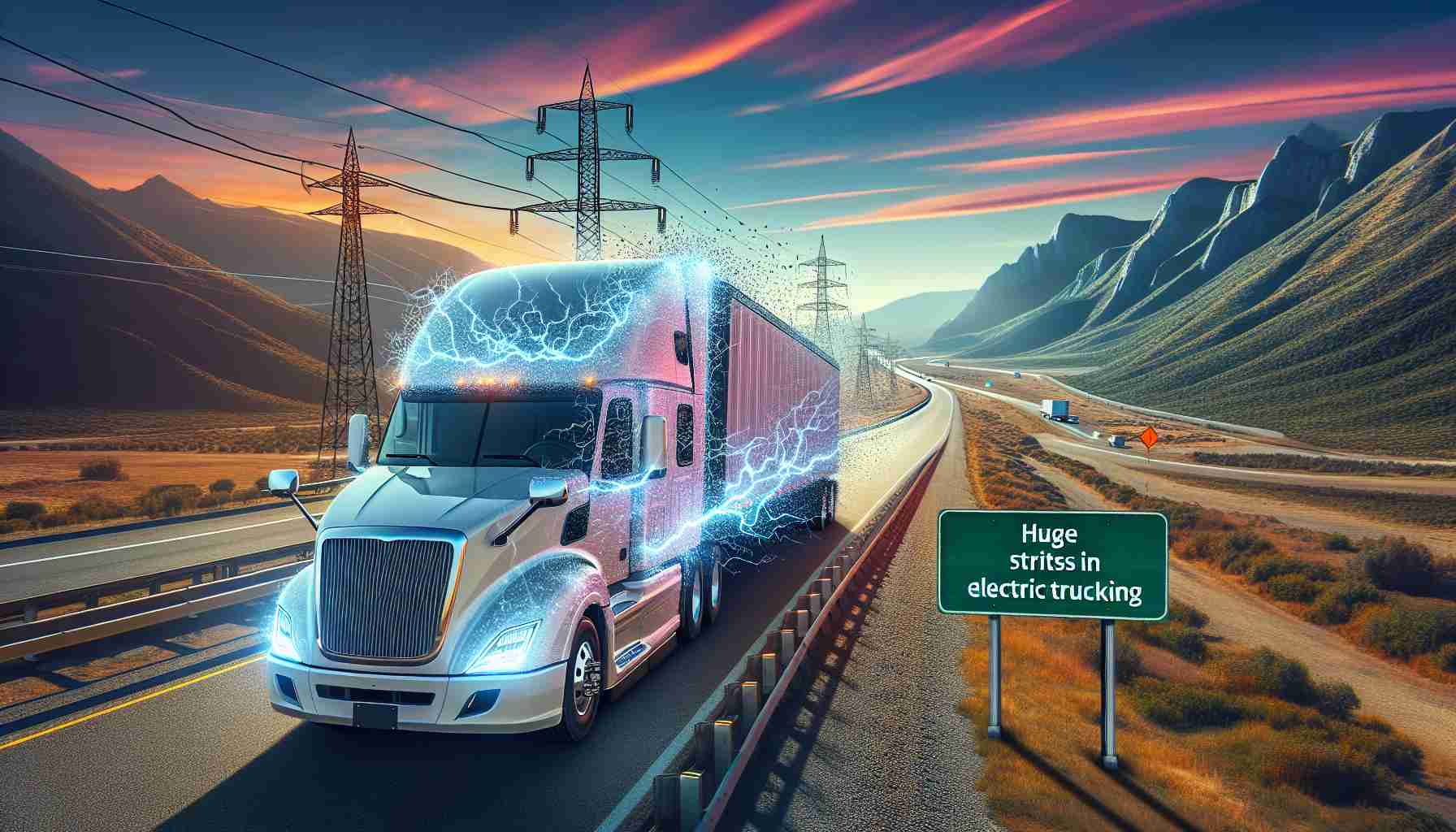Schneider National, a key player in the trucking industry, has recently achieved a remarkable feat. Their fleet of battery-electric vehicles (BEVs) has officially surpassed 6 million miles in zero-emission travel. This achievement underscores Schneider’s ongoing commitment to sustainability and innovation in transportation.
The significant milestone has facilitated a reduction of 20 million pounds of carbon dioxide emissions, equivalent to removing over 2,100 gas-powered cars from the roads for a year. This impressive statistic illustrates the positive environmental impact of Schneider’s fleet, which consists of nearly 100 Freightliner eCascadia electric trucks primarily operating in Southern California.
Schneider’s proactive approach includes a state-of-the-art charging depot in South El Monte, boasting 16 high-capacity dispensers capable of charging 32 trucks simultaneously, ensuring operational efficiency. Additionally, the company’s efforts are bolstered by support from various environmental initiatives, including the California Air Resources Board and the Joint Electric Truck Scaling Initiative (JETSI), which play vital roles in funding these eco-friendly vehicles.
As air quality continues to be a pressing concern for Southern California, Schneider’s move towards an electric fleet not only mitigates pollution but also promotes public health in the region. As electric trucking progresses, Schneider National sets a valuable precedent in the industry while championing a cleaner and more sustainable future for transportation.
Schneider National Milestone: Pioneering Zero-Emission Trucking
Schneider National’s Remarkable Journey in Electric Trucking
In an impressive stride towards sustainability, Schneider National has surpassed 6 million miles in zero-emission travel with its fleet of battery-electric vehicles (BEVs). This achievement symbolizes a significant commitment to reducing carbon emissions within the transportation sector. With an adept fleet primarily consisting of nearly 100 Freightliner eCascadia electric trucks, Schneider is not just setting benchmarks in mileage but also in environmental stewardship.
The Environmental Impact of Electric Trucking
The company’s initiative has resulted in a staggering reduction of 20 million pounds of carbon dioxide emissions, which is comparable to taking over 2,100 gas-powered cars off the roads for an entire year. This reduction showcases Schneider’s significant environmental contributions, addressing both air quality concerns and public health challenges prevalent in Southern California.
Advanced Infrastructure Supporting Electric Fleet
Central to Schneider’s operations is its state-of-the-art charging infrastructure located in South El Monte. This charging depot includes 16 high-capacity dispensers designed to charge 32 trucks simultaneously, providing the requisite operational efficiency necessary for a large-scale electric fleet. This innovative setup supports not only Schneider’s logistics but also acts as a model for other companies looking to transition to sustainable practices.
Partnerships and Supports Driving Innovation
Schneider’s ambitious plans and execution are enhanced by collaboration with key environmental authorities and initiatives. Their efforts are supported by organizations like the California Air Resources Board and the Joint Electric Truck Scaling Initiative (JETSI), which facilitate funding and resources to accelerate the adoption of eco-friendly transportation technologies.
Understanding the Broader Impacts
As air quality continues to be a pressing challenge in Southern California, Schneider National’s endeavor to transition to electric vehicles addresses both environmental and public health concerns. By pioneering the shift towards electric trucks, Schneider not only contributes to cleaner air but also sets a valuable precedent for the trucking industry at large.
Future Trends in Electric Trucking
The electrification of trucking is a trend gaining traction across the logistics industry, with more companies recognizing the necessity of sustainable practices. As technology continues to evolve and battery efficiencies improve, the potential for electric trucks to become mainstream is on the rise. Schneider National is at the forefront of this revolution, indicating not only a shift in operations but potentially forecasting a broader industry-wide change towards zero-emission vehicles.
For those interested in learning more about the broader implications of this shift towards electric trucking, visit Schneider National for insights and updates.
Conclusion
Schneider National’s initiative represents a significant leap toward sustainable transportation solutions. As this trend continues to grow, it sets benchmarks for others in the industry to follow while contributing to a greener future. The integration of electric vehicles into logistics is not just a response to environmental challenges but a proactive move towards redefining the very essence of transportation in the 21st century.







